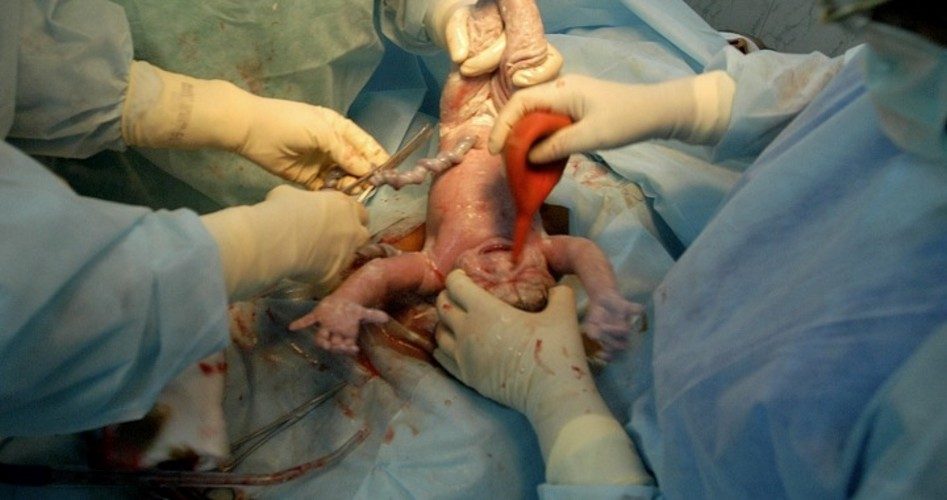
Michael J. Fox, the actor who has been one of the chief celebrity spokesmen on behalf of embryonic stem-cell treatment, is now admitting that the morally repugnant research has not provided the cure that he and others had hoped for such illnesses as his Parkinson’s disease. LifeNews.com recalled that Fox, who was diagnosed with Parkinson’s in the early 1990s, “was one of the leading campaigners for embryonic stem cell research. He aggressively pushed to force taxpayers to fund embryonic stem-cell research, opposed pro-life limits on it, and even attended a State of the Union address by President George W. Bush in order to flaunt his position.” But with years of such research offering no promising results, Fox is now among the once-hopeful proponents conceding that embryonic stem-cell lines will most likely not yield the cures once confidently promised by researchers looking for tax funding.
Fox told ABC’s Diane Sawyer that there have been “problems along the way” with the research into a cure for Parkinson’s using embryonic stem cells, adding that other drug therapies show more promise of helping stave off the symptoms. Fox, however, was unwilling to call the unfruitful stem-cell research a failure. “Stem cells are an avenue of research that we’ve pursued and continue to pursue, but it’s part of a broad portfolio of things that we look at,” he told Sawyer. “There have been some issues with stem cells, some problems along the way.”
He argued that “it’s not so much that [stem-cell research has] diminished in its prospects for breakthroughs as much as it’s the other avenues of research have grown and multiplied and become as much or more promising. So, an answer may come from stem cell research, but it’s more than likely to come from another area.”
LifeNews noted that Fox “still strongly believes in stem cell research and government support of those studies, praising ongoing research at New York’s Memorial Sloan-Kettering Hospital. When asked about earlier criticism he received from conservative talk show host Rush Limbaugh about his advocacy, Fox said it only ‘sharpens your resolve.’”
Fox’s qualified concession most likely means that he will no longer be serving as one of the poster celebrities for embryonic stem-cell research — what National Right to Life (NRTL) called the “celebrity victims” who have been “put in harness by industries and advocacy groups to use their fame to push a particular political agenda.” The most classic example of this in the stem-cell arena was Christopher Reeve, who was used “to push the false meme that embryonic stem cells were his only hope of walking again … even as adult stem cells were restoring sensation to paralyzed people in early human trials,” recalled NRTL. Likewise Michael J. Fox pushed “embryonic stem cells and human cloning research in political ads and biological baloney advocacy as the primary answer to Parkinson’s disease, when other modalities were offering great hope.”
Meanwhile, as Fox focuses on other drug and treatment options, adult stem-cell research continues to show promise of helping individuals with a variety of medical issues. Writing in National Right to Life News, Dr. David Prentice, senior fellow for life sciences at the Family Research Council, noted that adult stem cells “remain the only type of stem cell used successfully to treat human patients. They are the one and only gold standard for clinical treatments with stem cells.”
Prentice explained that adult stem cells boast several notable advantages over embryonic stem cells. “They can be isolated from numerous tissues, including bone marrow, muscle, fat, and umbilical cord blood, just to name a few,” he wrote. “And isolating the adult stem cells from tissues of a patient or a healthy donor does not require harming or destroying the donor, giving adult stem cells a decided ethical advantage over embryonic stem cells.”
Additionally, he wrote, adult stem cells “have a proven track record for success at saving lives and improving health on a daily basis. Over 50,000 people around the globe are treated each year with adult stem cells. The diseases and conditions successfully treated by adult stem cells, as shown by published scientific evidence, continue to expand, with published success for numerous cancers, spinal cord injury, heart damage, multiple sclerosis, sickle cell anemia, and many others.” (Log on to www.stemcellresearchfacts.org to see some of the medical successes from adult stem-cell treatment.)
Michael J. Fox is not the first high-profile case of an erstwhile advocate backing off support for embryonic stem-cell research. LifeNews.com noted that in November 2011, the cancer research foundation Komen for the Cure “quietly added a new statement to its web site stating that it does not support embryonic stem cell research, but supports the kinds that do not involve the destruction of human life.”
In its statement Komen said that it “supports research on the isolation, derivation, production, and testing of stem cells that are capable of producing all or almost all of the cell types of the developing body and may result in improved understanding of or treatments for breast cancer, but are derived without creating a human embryo or destroying a human embryo.” Komen added that a “priority in our research funding is to quickly find and deliver effective treatments, especially for the most lethal forms of breast cancer, while seeking effective preventive strategies, enhanced screening methodologies, and solutions to disparities in breast cancer outcomes for diverse women.”
More recently, reported LifeNews, Komen “released a new statement on embryonic stem cell research — saying such research shows ‘no promise’ when it comes to finding cures or treatments for breast cancer.”
LifeNews noted that, in fact, “embryonic stem cells themselves have never been tried on human patients because of massive problems, such as the formation of tumors and immune system rejection issues — whereas adult stem cells have helped patients dealing with more than 100 diseases or medical conditions.”
Photo: AP Images



